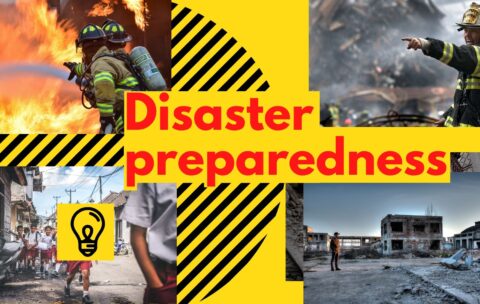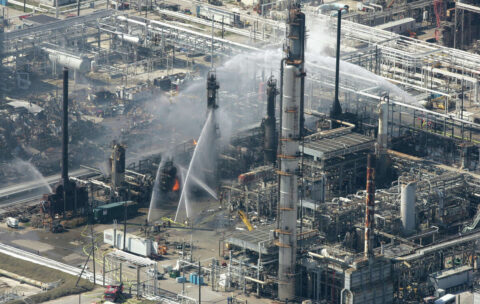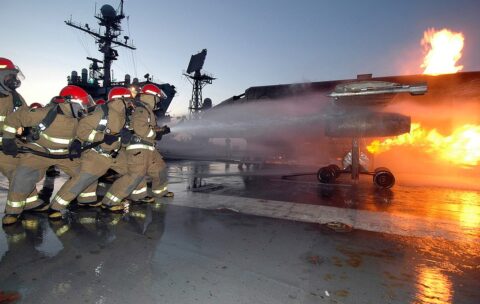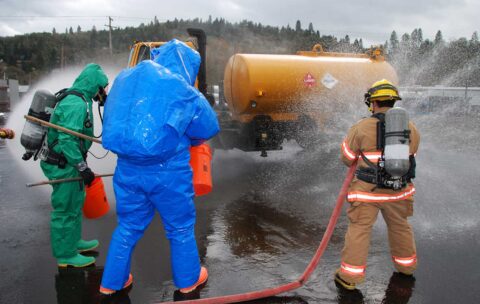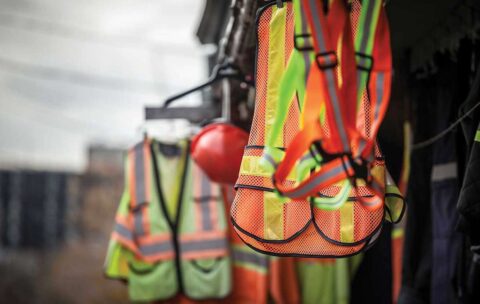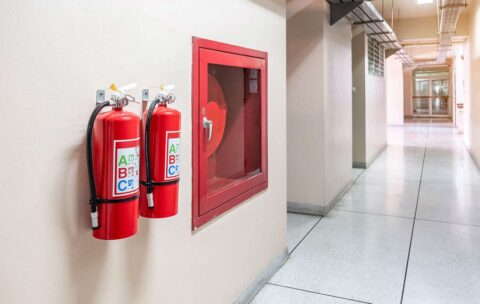Disaster Preparedness and Management Course
The 5-day Crises Preparedness and Management Course is designed to …
What you'll learn
Demonstrate an understanding of the Disaster Preparedness & Management System, including planning and response strategies.
Develop an awareness of the preparedness cycle, useful planning tools, and emergency support functions.
Create a personal action plan that promotes a culture of preparedness.
Analyze risks, stakeholder requirements, and emergency planning.
Assess and plan for both known existing hazards and potential future hazards.
Encourage the exchange of ideas through discussion and brainstorming, and build upon those ideas for the next steps.
Industrial Incidents (Incident Command, Response & Management)
A 3-day course is available for fire service management personnel …
What you'll learn
Acquire the essential knowledge, comprehension, and abilities to fulfill the position of an Industrial Incident Commander or contribute effectively as a member of an Industrial Incident Commanding and Response team.
Aircraft’s Fire Fighting Strategies & Tactics
This three-day course is designed to provide comprehensive coverage of …
What you'll learn
Discuss the responsibilities of airport firefighters.
Identify the safety considerations for ARFF (Aircraft Rescue and Firefighting) operations.
Explain the types of extinguishing agents used in ARFF operations.
Evaluate the effectiveness of ARFF operations in mitigating common aircraft emergencies.
Highlight the necessary rescue operations for an aircraft incident.
Demonstrate the use of an airport emergency plan when responding to airport emergencies.
Responding to Hazardous Materials Incidents
Engaging and motivating students are always very challenging task faced …
What you'll learn
Describe the standards, laws, and legislation that apply to the initial response to hazardous materials incidents.
Appreciate the importance of safety during the response to hazardous material incidents.
Identify the class of hazardous materials present at the scene.
Explain the benefits and consequences of basic concepts and procedures used in managing hazardous materials sites and setting up the scene.
Understand the role of first responders in decontamination during hazardous materials incidents.
Be familiar with the challenges and risks associated with the initial response to hazardous materials incidents.
Permit to Work Issuer and Receiver Course
Permit-to-work systems are implemented to control high-risk work activities that …
What you'll learn
Value the importance of implementing a Permit to Work System.
List and explain the different types of Permit-to-Work applications and their essential components.
Define the roles and responsibilities of those who have the authority to authorize specific jobs, including any limitations, and those responsible for specifying necessary precautions.
Ensure that all employees and contractors involved in the work are covered by the Permit to Work System and understand their responsibilities.
Regularly monitor and audit the system to ensure that it is functioning as intended and effectively promoting safety.
Prioritize safety to ensure that work is carried out in a controlled and secure manner.
Incident Safety Officer’s Course
The goal of this course is to provide students with …
What you'll learn
Define the job performance requirements of an incident safety officer.
Formulate a risk management matrix for various anticipated incidents and planned events.
Evaluate incidents for unacceptable risk, and recommend remediation opportunities.
Summarize the roles and responsibilities of an incident safety officer before, during and after an incident.
Hazard Identification and Control
The course explains the techniques that are widely used for …
What you'll learn
Demonstrate a comprehensive understanding of the role of safety and health professionals in finding sustainable solutions to hazards in industrial operations.
Explain the hazards that are commonly found in industrial facilities, temporary worksites, and service industries.
Discuss the hazards associated with industrial processes and how to apply the hierarchy of control to secure them.
Express the relevant regulations and standards that govern the control of industrial hazards.
Fire Protection Systems for Emergency Operations
This course will teach the essential procedures for gathering and …
What you'll learn
The purpose of this course is to provide Incident Commanders (ICs) and response crews with an understanding of the fire protection systems in buildings. It aims to explain how these systems work and how their proper use can help ICs and crews effectively handle building fires. Additionally, the course aims to educate fire officers on how to acquire this information through effective pre-incident planning and how to communicate this knowledge to other firefighters who need to respond and function effectively using these systems during emergencies.
- 1
- 2

